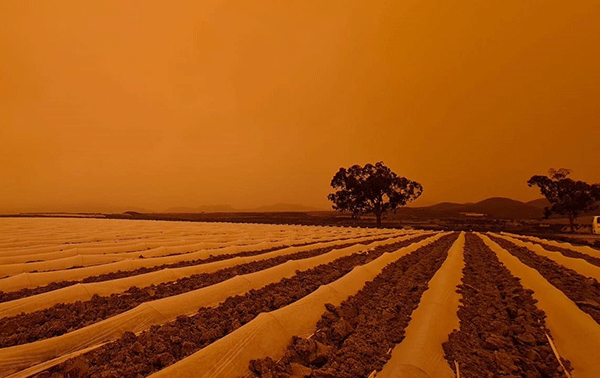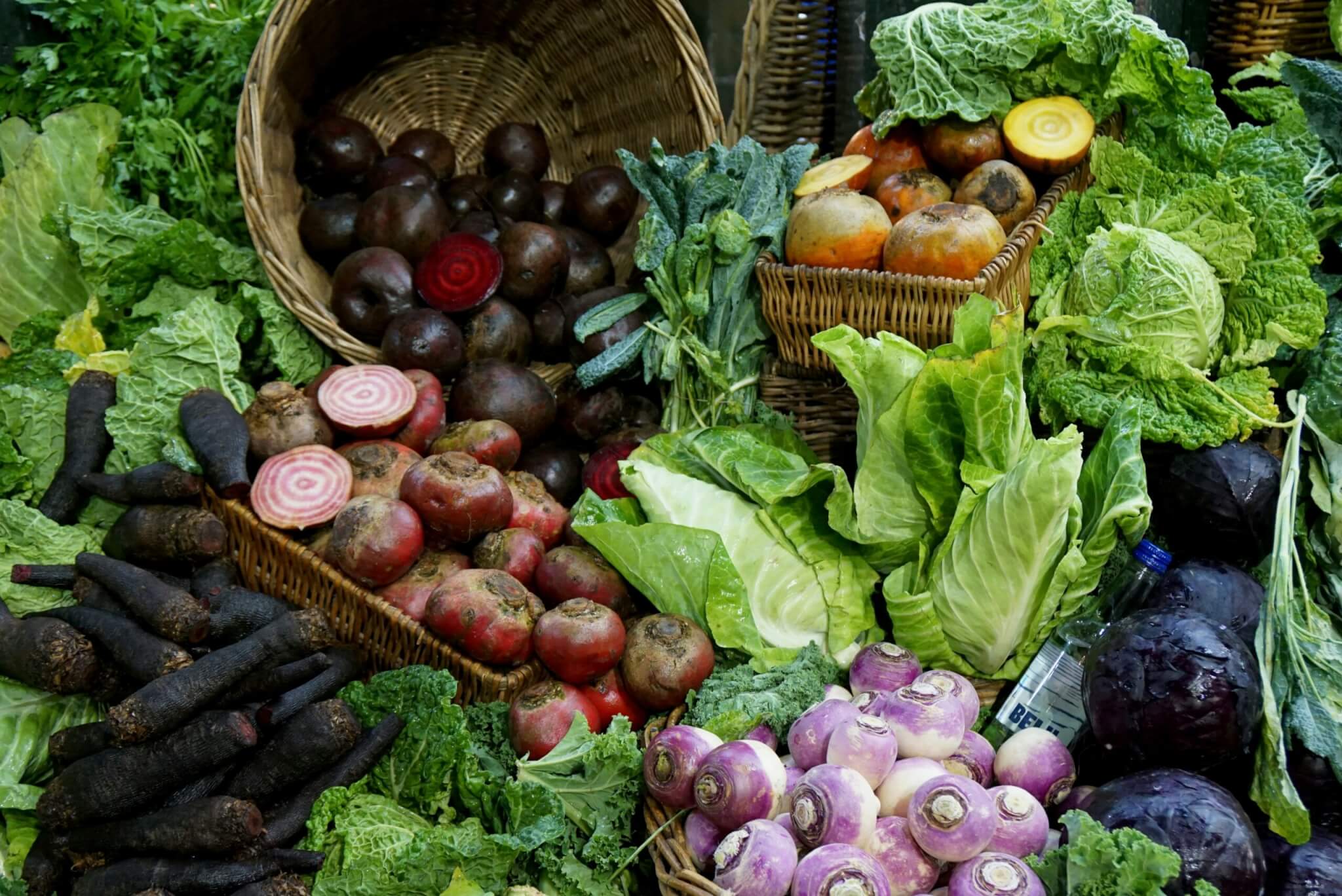Spanish growers are facing a challenging start to their new growing season with a long-term drought compounded by strikes due to rising fuel costs and a sandstorm.
Dust from a sandstorm from the Sahara Desert blew across southern Spain for much of this week, tainting the sky orange and leaving a covering of dust on many polytunnels and crops growing outdoors.
It comes in a difficult week for the Spanish industry, which supplies the majority of the UK’s fruit and veg at this time of year before the homegrown season begins. A lorry driver strike is taking place throughout the country as fuel costs soar by 40 per cent and a tussle over who will shoulder the extra costs.
Crops have not been affected by the sandstorm, as dust can be washed off easily, but there is possibility of disruption or delays to Spanish imports over the weekend due to the strike as companies try to find alternative routes via France or even Holland.

“Mainly this time it’s about the increased higher prices of petrol. So they decided to do the strike which is causing a lot of problems for growers, because they can’t even harvest their crop and take it to the warehouse because we have these pickets everywhere made of lorries,” said Flemming Andersen, a fresh produce buyer based in Spain.
“If I had a lorry and I see that my costs of petrol are increasing by 40 per cent, and the people that I drive for they say they don’t want to pay more, then yes – you can start up the truck, but any trip would be a loss. And of course that’s why they’re complaining. Nobody wants to pay the extra costs. And so that’s why they strike, which personally I understand.”
The cost of fuel, as well as feed and fertiliser, are soaring due to Russia’s invasion of Ukraine. But the more worrying challenge faced by growers across Spain is a long-term drought threatening both this year’s crops, and planting for next year.
Reservoirs are running dry across the country after it received only a third of average rainfall during this winter in a demonstration of the impact of the climate crisis on one of Europe’s most valuable food producer countries.
Growers are technically banned from irrigating crops, but many are continuing to do so or risk losing their entire crop. Spain supplies a vast range of salad veg to the UK at this time of year, with key seasonal stars about to begin including Spanish broad beans and asparagus.
“The drought is the main problem. Especially because there aren’t even many areas in Spain that are allowed to do any irrigation. Simple as that. They do it anyway and the authorities know that the growers have to do it, so they’re being quite flexible,” said Andersen.
“The drought will be the main challenge in the future because Spain, at least south of Madrid, is a desert,” he added.
British growers are about the enter what is described as the ‘Hungry Gap’, when winter crops have come to an end and before new season produce is ready to harvest. Some crops that have been ‘brought on’ using heat, such as very early asparagus, are already available in supermarkets, but the bulk of the UK growing season will begin slowly from mid April and gear up to a peak over summer.












We got some of that sand all over our car this week as did many others.